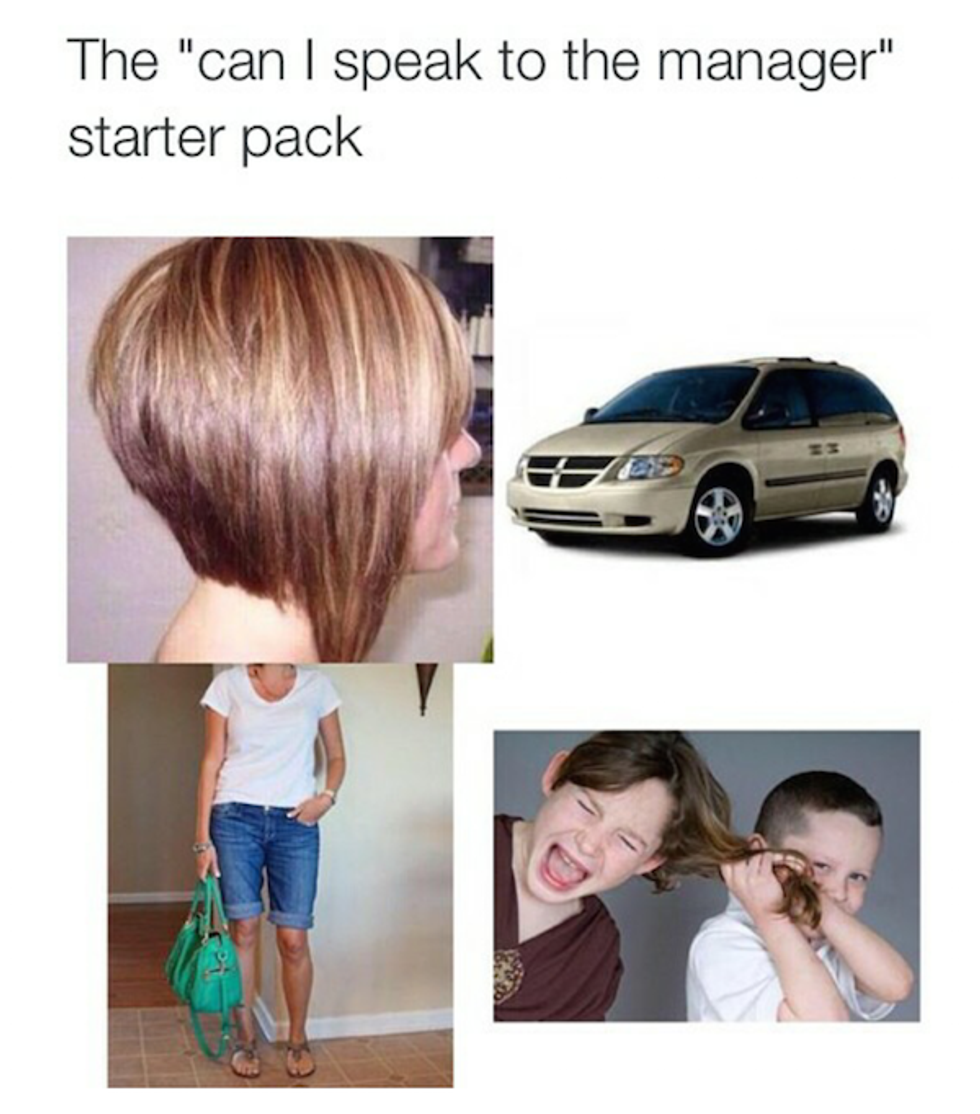As an English major just 2 courses shy of graduation who has an interest in studying concepts of language that most people appreciate on an instinctual level, I am going to be analyzing the linguistics of modern memes.
First off, let’s define a meme.
My personal definition (although maybe it’s not just me) is based off what I’ve seen and researched: a meme is a visual or textual concept that is altered slightly and spread among people via the internet.
So some visual examples would be salt bae:
Or more traditionally, this picture of Leonardo DiCaprio being Gatsby:
But what is the language of memes? First of all, it’s not universal.
Most of the language is minimal, like referring to random women as Susan or Karen.
Or the ever common starter pack.
However, those examples are just about clever word choice. I’d like to shift more into linguistics, the study of language, and I need to use an example with discernible patterns.
Let’s talk about Doge. “Doge” is a meme with its own phraseology that’s based on the English language, but altered to represent how a doge might (theoretically) speak. Doge, in particular, is a picture of a dog of the Shiba Inu breed, and usually, he looks as startled or surprised as a doge naturally could (someone has added glasses to this Doge):
He uses words like “wow,” “so ___,” “very___” and “much ____” which are words and phrases that imply surprise and (in some cases) a large quantity of something metaphysical. As another example, to define the word metaphysical Doge would say ‘wow’ ‘so intellect’ and ‘much intangible.’
Now, let’s dig deeper than Doge. There are dog memes all over the internet that refer to dogs in words that either are not used correctly on the basis of the current dictionary or they’re not even in the current dictionary.
These memes are created (presumably) by different people, but they all use basically the same words, making these memes (I would argue) a new dialect. I found this handy Lucidchart video on Facebook explaining this dialect a while back.
So, in this dialect—we’ll call it “dog meme language” to clarify it, but that’s a technically incorrect term—a dog is a doggo, a small dog is a pupper, big dog is a woofer, a huge dog is a floofer and tiny dog (smaller than small dog) is a yapper. Then you can go back on yourself so a woofer (big dog) is a big ol doggo and pupper (small dog) is a smol doggo and to go on let’s insert a helpful paradigm (example/pattern):
Yapper: ‘smol [small] pupper’
Pupper: 'smol doggo’
Doggo: ‘dog’
Woofer: ‘big ol [large] doggo’
Floofer: ‘big ol woofer’
Then there are other categories of dogs, like a big dog swimming is a subwoofer and a dog in a costume is bamboolzin or bamboozled (seriously, it’s a thing). Some breeds have specific names. A pug is a puggo, there’s a corggo (corgi) and of course, doge is a Shiba Inu.
It’s all very interesting that this meme language has some rules and then it breaks those rules occasionally anyway. As you can see, there are a lot of “-ggo” In this situation, “-ggo” is a new suffix, a bound morpheme (aka a part of a word that can’t be used on its own as a word) that indicates we are talking about a dog. So that’s a rule, right? We’ve got doggo, corggo, puggo, and a slew of variations of the word doggo (long doggo, special doggo, aqua doggo, etc.)
It’s not really a rule, though, because we also have pupper, yapper, woofer, and floofer that all have a double vowel or consonant and then end with the suffix “-er.” However, I believe that similar to the traditional English language, this dog meme language makes just enough sense to be its own entity.
For the most part, the words used directly correlate to known English terms. Even the word “smol,” while some might argue it also packs a lot more subtext, technically just means “small.”
There are more words used in conjunction with doggo its semantic field (mental category). “Babmboozlin,” like I mentioned before, also “heckin”, and the new echoic word (or onomatopoeia) for the sound a dog makes, “bork.” The “-in” suffix is a dialectical version of normal English suffix “-ing.”
So, it means the same thing, but it sounds different (and the difference in sound is only somewhat relevant). Why bother with creating and using different words from English, though, if you take the same meaning from them? Well, because it’s funny.
Stop asking silly questions.
Today, we learned the linguistics jargon, “dialect,” “paradigm,” “bound morpheme,” “semantic field,” and “echoic word.” I hope you now know how to apply them to sound smart. Furthermore, next time you scroll endlessly down your Facebook feed for chuckles, try to notice the language used in the memes you see. You might find it oddly educational.























